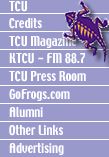|
Friday,
November 2, 2001
Terrorist
attacks revitalize interest in ‘smart cards’
By
Doug Bedell and Paula Felps
Dallas Morning News
DALLAS
(KRT) — The attacks of Sept. 11 have rekindled calls
for a national identification card — a “smart card”
containing embedded personal information.
lthough
even smart cards can be forged, many see them as an important
tool in the fight against terrorists.
The White
House has ruled out creating a national identity card system
as a counter-terrorism measure.
But an
airline industry task force, advising Transportation Secretary
Norman Mineta on ways to prevent terrorist attacks aboard
airliners, is suggesting a national transportation card that
officials say would make flying safer — and would revamp
airport ticket counters.
A card
could be embedded with the traveler’s picture and/or
a fingerprint, which would have to match with the person who
walks up to the ticket counter. The card also would contain
the passenger’s flight history, address and phone number.
Proponents
of a national ID system argue that people must prove their
identity now, using a driver’s license and Social Security
number, yet both are forged easily. But not everyone agrees
with the concept.
“It’s
contrary to the spirit of America,” said Edward Crane,
founder and president of the libertarian CATO Institute. “We
shouldn’t be forced to show our papers wherever we go.”
Smart
card technology has been employed in a growing number of applications
in the United States in recent years.
Many
consumers are already familiar with stored-value smart cards,
which often are sold as single-use gift cards. Some retailers,
such as The Gap, also sell renewable smart cards.
Florida
State University issues a card that functions as a student’s
ID, banking and dorm security card, and has stored-value functions
to pay for food and phone calls.
“The
students like it because it’s easy. You don’t need
pocket change anymore,” explained Diana Norwood, director
of the 5-year-old FSU card program.
FSU issues
cards that enable parents to transfer money directly to a
student’s account, let the financial aid office deliver
funds and allow students to make long-distance calls and open
their dorm room doors.
“Parents
like it because it’s a prepaid value card; they can put
a certain amount of money in the account, which is a lot safer
than turning an 18-year-old loose with a credit card,”
Norwood said.
Industry
experts expect smart cards to permeate the economy.
“One
of the things that is becoming popular is a payroll application,
which allows organizations to disburse funds to employees
through a stored-value card,” said Frank D’Angelo,
general manager of Metavante EFT and Card Solutions of Milwaukee,
Wis.
On payday,
companies add value to the card, which can be used to buy
food at the workplace and separately as an ATM card through
the company’s account.
“For
a consumer who doesn’t have a banking relationship, it’s
a better alternative than paying a fee to get a check cashed.”
Cards
also are popping up at festivals and events that previously
required paper tickets.
The technology
has been around for years but is just now picking up steam.
A study done last year by the research firm Dataquest predicts
a 60 percent annual growth rate in smart card users from 1998
to 2003.
Many
U.S. consumers were introduced to smart cards in 1999, when
American Express introduced Blue, a card with a chip that
offers extra security when shopping online, courtesy of a
special card reader attached to a customer’s PC. Blue
now has an estimated 4 million users.
In El
Salvador and Argentina, smart driver’s licenses provide
police with immediate access to data. In Mexico, smart cards
ensure collection of auto registration fees and reduce the
likelihood of stolen cars being sold to unsuspecting dealers.
In the
future, smart cards could be used as health cards, enabling
patients to carry medical records with them.
|
